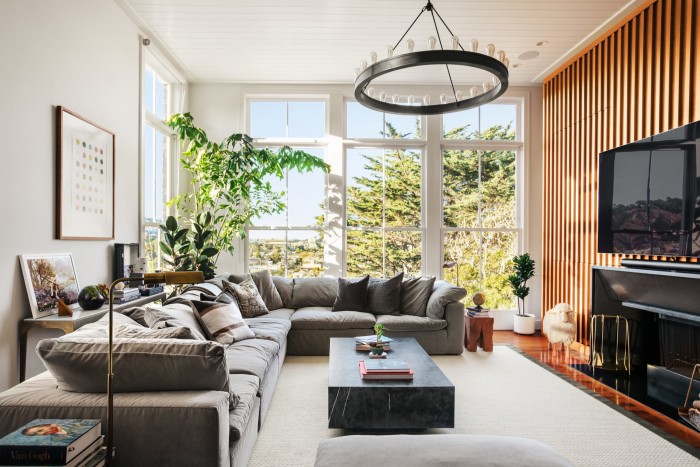
Airbnb chief executive Brian Chesky is making a renewed push to increase room supply on the travel platform, with the average price per night having soared more than 40 per cent above pre-pandemic levels.
Chesky said he was “not satisfied” with the inflated cost of using the short-term accommodation site, laying out measures to address the problem, including a move to pay existing hosts to help new ones get set up on the platform, as well as longer-term plans to reduce cleaning fees.
The average daily cost of a stay on Airbnb was $156 in the July-to-September period, up 5 per cent on 2021 and a rise of more than 40 per cent compared with 2019.
“If you’re looking for a city on a certain day, kind of last minute, that’s not nearly what we’d want,” Chesky said. “So I’m not satisfied; I’d like it to become more affordable.”
The renewed push to increase supply comes just six months after Airbnb revamped its website in an effort to entice tourists to locations where it has more places to stay, as it sought to ensure pent-up demand is not held back by supply issues.
Chesky said the rise in rental rates continued to be driven by supply constraints in popular locations but also a dramatic spike in the cost of cleaning fees added to customers’ bills.
“Cleaning fees is the biggest issue,” he said. “You expect one thing, you get another . . . the overall ‘wow, why does this cost x?’.”
According to external data from AirDNA, average cleaning fees for short-term rentals were up 28 per cent in October 2022 compared with the same month in 2019. In urban areas, the increase has been almost 50 per cent in that same period.

As well as recently changing Airbnb’s interface to show cleaning charges upfront, Chesky said that, longer term, the company was considering launching a marketplace that would allow local cleaning providers to compete against each other more directly in an attempt to reduce rates.
Supply on the site has shown signs of picking up, with active listings up 15 per cent on last year, though most new locations were in non-urban areas, according to recent company filings.
Airbnb this week launched several service updates to further increase the number of available rooms and properties. Among them is a programme that will pay existing “super” hosts — those with a long and positive record — to help new hosts get set up on the platform, via video calls and other guidance.
Airbnb said it would also verify the identities of all Airbnb customers by spring 2023. Insurance cover has been increased to $3mn, and now includes things such as hosts’ parked cars, or boats, at the property.
Among the new hosts joining the platform is Chesky himself, whose San Francisco home is now among those listed. Vetted guests will be able to stay while Chesky is at the property, but will not pay a fee.
“There’ll be security there, [but] it’ll be pretty low-key,” Chesky said, describing it as both a publicity stunt but also an effort to stay “in touch”.
While travel stocks have been somewhat insulated by the broader market downturn thanks to post-lockdown demand, Airbnb’s share price has fallen 38 per cent since the start of the year amid broader fears over consumer spending power.
Chesky said Airbnb had no plans to freeze hiring or change its recruitment plans amid a move by tech groups in recent weeks to make sweeping job lay-offs following a slump in digital advertising and concerns of a recession. Amazon is planning to cut about 10,000 jobs from its corporate workforce, while Meta last week laid off more than 11,000 employees, or 13 per cent of its workforce.
But having made sweeping cuts during the depths of the pandemic in mid-2020, in which about 2,000 full-time employees were laid off and about 1,000 contractors, Chesky said he had no concerns about Airbnb’s current size.
“We’re not freezing, we’re not changing any hiring plans. And unless something like dramatically different happens, we’re not changing anything. Absolutely not. We’re probably stepping on the gas rather than putting on the brakes.”